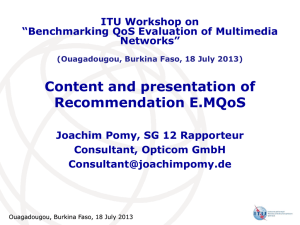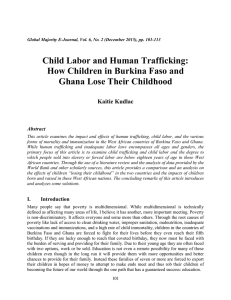ZEFnews No. 33 12
advertisement
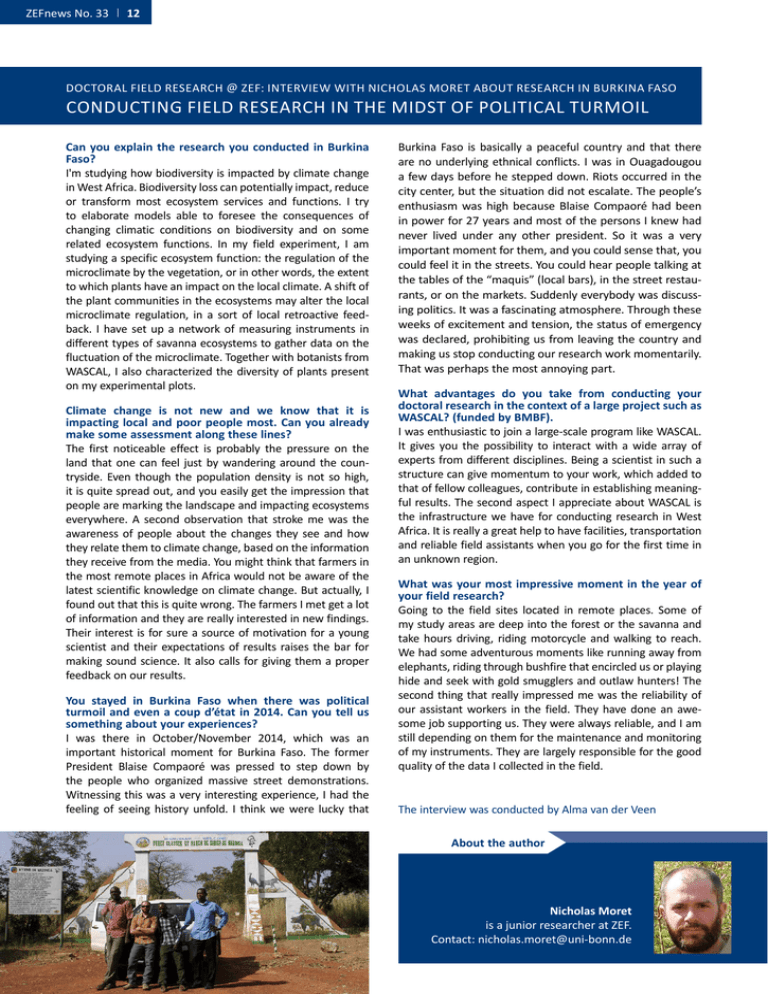
ZEFnews No. 33 12 DOCTORAL FIELD RESEARCH @ ZEF: INTERVIEW WITH NICHOLAS MORET ABOUT RESEARCH IN BURKINA FASO CONDUCTING FIELD RESEARCH IN THE MIDST OF POLITICAL TURMOIL Can you explain the research you conducted in Burkina Faso? I'm studying how biodiversity is impacted by climate change in West Africa. Biodiversity loss can potentially impact, reduce or transform most ecosystem services and functions. I try to elaborate models able to foresee the consequences of changing climatic conditions on biodiversity and on some related ecosystem functions. In my field experiment, I am studying a specific ecosystem function: the regulation of the microclimate by the vegetation, or in other words, the extent to which plants have an impact on the local climate. A shift of the plant communities in the ecosystems may alter the local microclimate regulation, in a sort of local retroactive feedback. I have set up a network of measuring instruments in different types of savanna ecosystems to gather data on the fluctuation of the microclimate. Together with botanists from WASCAL, I also characterized the diversity of plants present on my experimental plots. Climate change is not new and we know that it is impacting local and poor people most. Can you already make some assessment along these lines? The first noticeable effect is probably the pressure on the land that one can feel just by wandering around the countryside. Even though the population density is not so high, it is quite spread out, and you easily get the impression that people are marking the landscape and impacting ecosystems everywhere. A second observation that stroke me was the awareness of people about the changes they see and how they relate them to climate change, based on the information they receive from the media. You might think that farmers in the most remote places in Africa would not be aware of the latest scientific knowledge on climate change. But actually, I found out that this is quite wrong. The farmers I met get a lot of information and they are really interested in new findings. Their interest is for sure a source of motivation for a young scientist and their expectations of results raises the bar for making sound science. It also calls for giving them a proper feedback on our results. You stayed in Burkina Faso when there was political turmoil and even a coup d’état in 2014. Can you tell us something about your experiences? I was there in October/November 2014, which was an important historical moment for Burkina Faso. The former President Blaise Compaoré was pressed to step down by the people who organized massive street demonstrations. Witnessing this was a very interesting experience, I had the feeling of seeing history unfold. I think we were lucky that Burkina Faso is basically a peaceful country and that there are no underlying ethnical conflicts. I was in Ouagadougou a few days before he stepped down. Riots occurred in the city center, but the situation did not escalate. The people’s enthusiasm was high because Blaise Compaoré had been in power for 27 years and most of the persons I knew had never lived under any other president. So it was a very important moment for them, and you could sense that, you could feel it in the streets. You could hear people talking at the tables of the “maquis” (local bars), in the street restaurants, or on the markets. Suddenly everybody was discussing politics. It was a fascinating atmosphere. Through these weeks of excitement and tension, the status of emergency was declared, prohibiting us from leaving the country and making us stop conducting our research work momentarily. That was perhaps the most annoying part. What advantages do you take from conducting your doctoral research in the context of a large project such as WASCAL? (funded by BMBF). I was enthusiastic to join a large-scale program like WASCAL. It gives you the possibility to interact with a wide array of experts from different disciplines. Being a scientist in such a structure can give momentum to your work, which added to that of fellow colleagues, contribute in establishing meaningful results. The second aspect I appreciate about WASCAL is the infrastructure we have for conducting research in West Africa. It is really a great help to have facilities, transportation and reliable field assistants when you go for the first time in an unknown region. What was your most impressive moment in the year of your field research? Going to the field sites located in remote places. Some of my study areas are deep into the forest or the savanna and take hours driving, riding motorcycle and walking to reach. We had some adventurous moments like running away from elephants, riding through bushfire that encircled us or playing hide and seek with gold smugglers and outlaw hunters! The second thing that really impressed me was the reliability of our assistant workers in the field. They have done an awesome job supporting us. They were always reliable, and I am still depending on them for the maintenance and monitoring of my instruments. They are largely responsible for the good quality of the data I collected in the field. The interview was conducted by Alma van der Veen About the author Nicholas Moret is a junior researcher at ZEF. Contact: nicholas.moret@uni-bonn.de
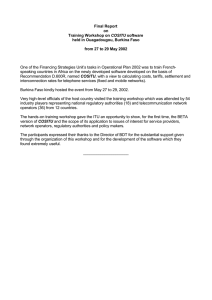
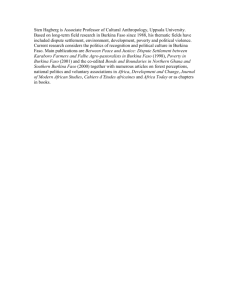
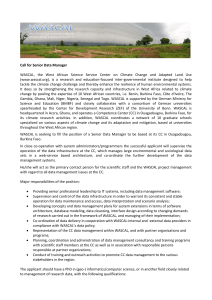
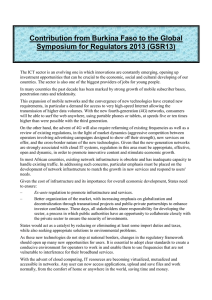
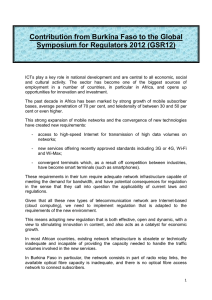
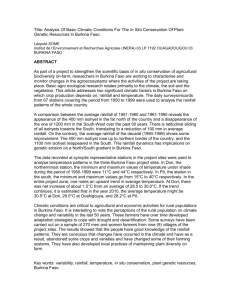
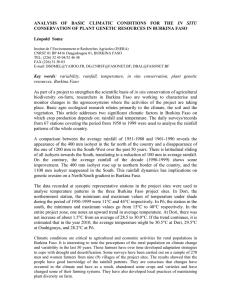
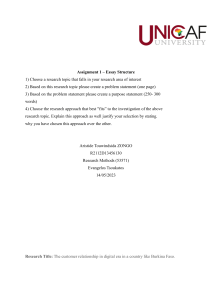
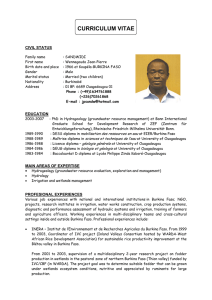
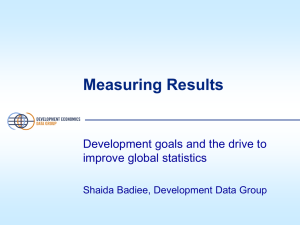
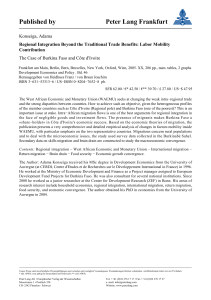
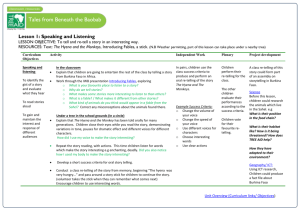
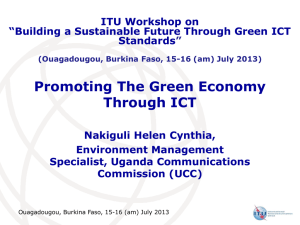
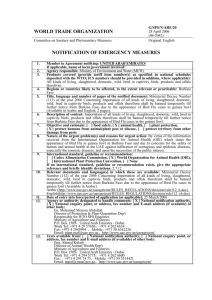
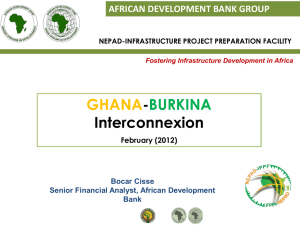
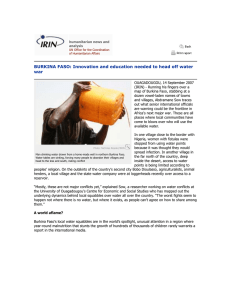
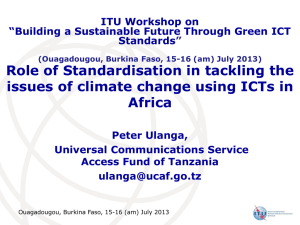
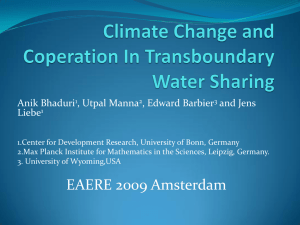
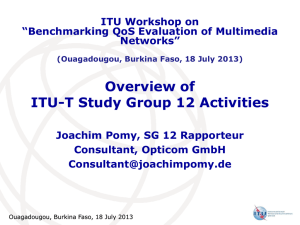
![SECOND PART: APPLICATION FORM IN WORD ] HRC res. 26/17](http://s2.studylib.net/store/data/017689210_1-ca07f52778dd36c70d82ed98abdc9f37-300x300.png)
